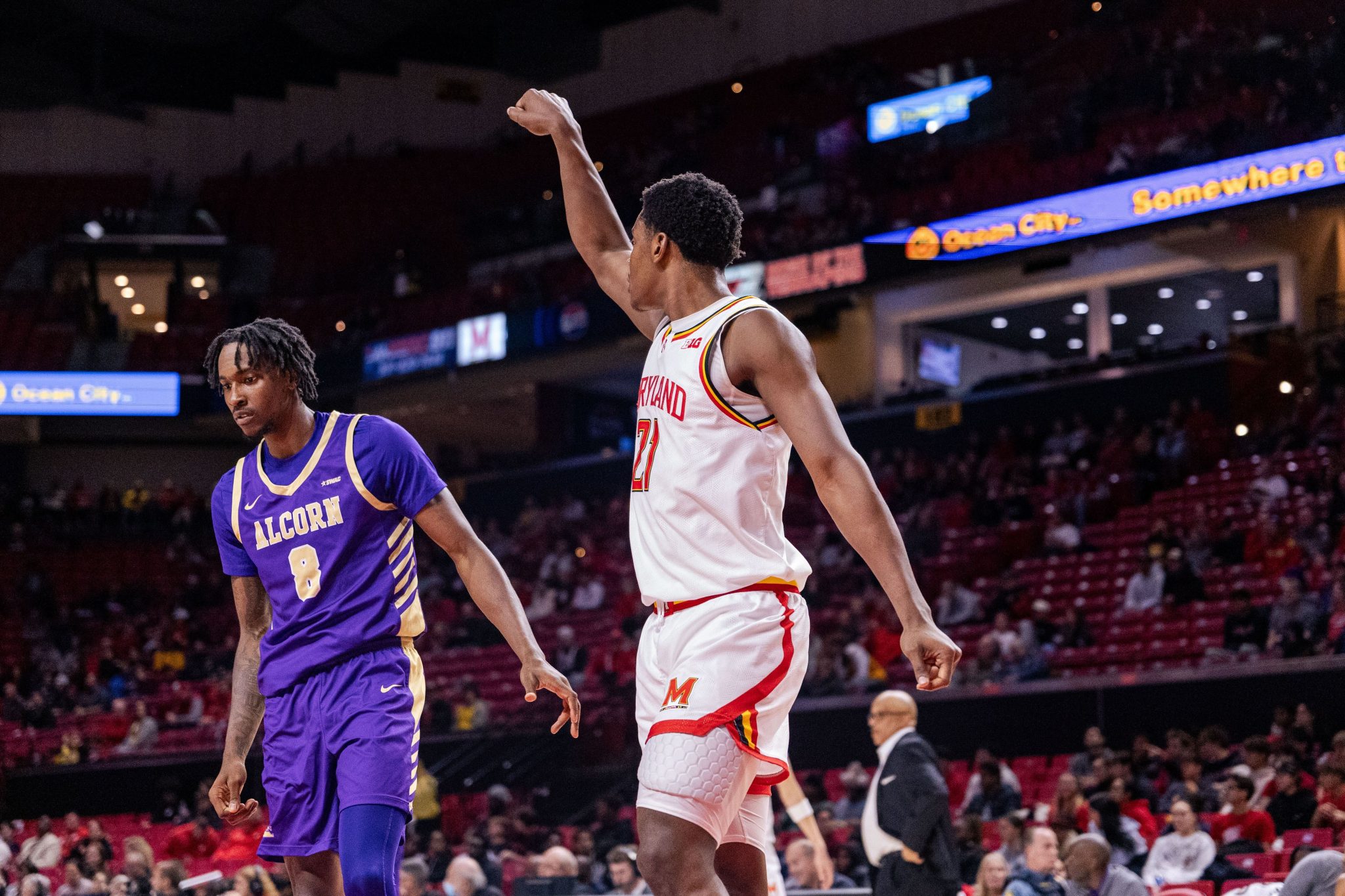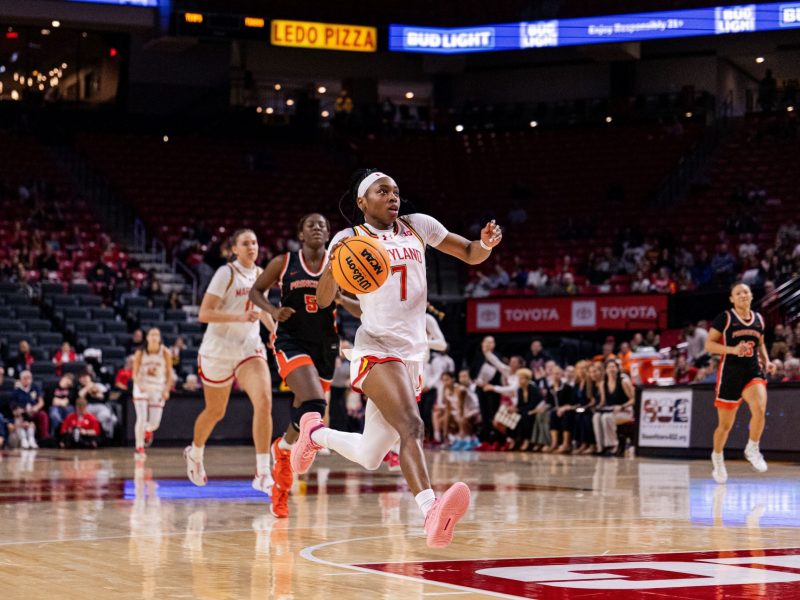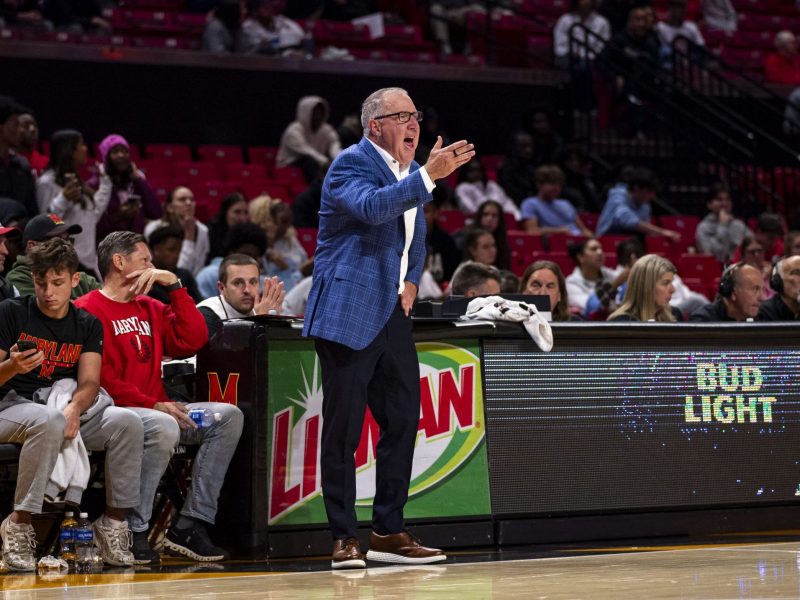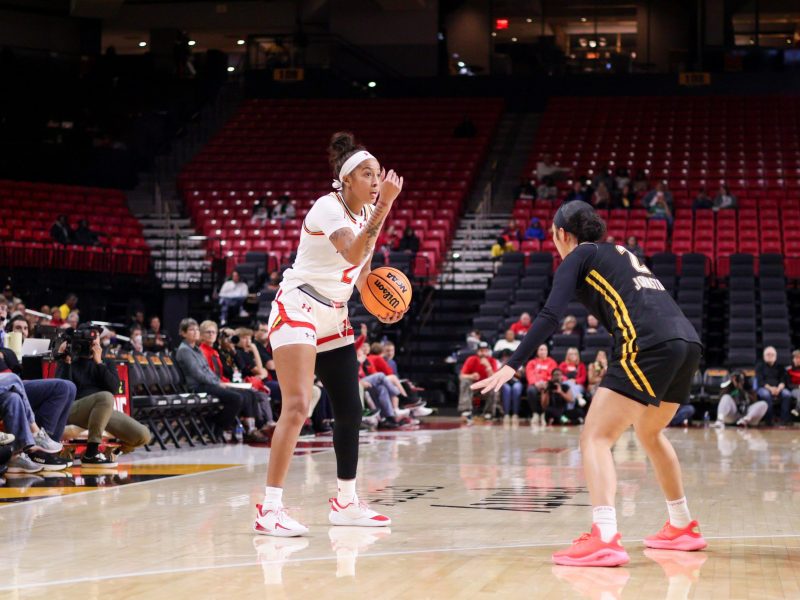Buzz Williams, a constant emblem of emotion, teared up on the Fiserv Forum sideline Saturday.
Maryland men’s basketball’s coach watched as Pharrel Payne, his top transfer and the Terps’ on-court leader, yelped in pain before being stretchered off the court following an awkward landing after a dunk.
“I’ve never seen him hurt, and the angle that I saw, it did not appear good,” Williams said.
Payne shouldered the offensive load in the Terps’ first three games. But foul trouble and the gruesome injury kept the senior forward off the hardwood for most of the afternoon.
Maryland trailed by five when Payne exited. Forced to reassess without its star big man, the backcourt weathered seven lead changes en route to an 89-82 win over Marquette.
Fueled by a significant size disparity, the Golden Eagles dominated the offensive glass and scored 19 more second-chance points. But Maryland (3-1) made seven more free throws and scored 15 more bench points, which proved to be the difference.
[Maryland volleyball swept by No. 9 Purdue, 3-0, for eighth straight loss]
Williams, in his first trip back to Milwaukee since coaching Marquette from 2008-14, was focused on controlling possessions and limiting turnovers — specifically within on-ball press break scenarios.
Entering the Terps’ first true road test, the coach also pointed to rebounding as an area of concern. He sees boards as a niche “margin we could compete in … not based exclusively on talent.” But the Golden Eagles (3-2), aided by the absence of Payne at the rim, claimed the game’s first 14 offensive rebounds.
“Rebounding takes an enormous amount of time. We are beyond bad at it, not just against Marquette,” Williams said. “If you saw all the drills we did for rebounding, you would think we’re putting on a coaching clinic. But we are not executing it well at all.”
Led by defensive-minded coach Shaka Smart, Marquette led the Big East in forced turnovers last season. The only high-major school to not sign a transfer the past three seasons opened Saturday with staunch full-court man defense.
The Terps took advantage.
Maryland ran its revamped press offense through Diggy Coit. The speedy graduate guard, making his second consecutive start alongside freshman Darius Adams, attacked the backpedaling Golden Eagles’ front line.
Maryland, after shooting an abysmal 28 percent from beyond the arc through its first three games, netted four straight threes to start Saturday — three of which came from Coit.
[Why Maryland men’s basketball’s offense hasn’t clicked]
The Kansas transfer sparked the Terps early, helping them open up a 13-point first-half lead. He poured in 15 points after 20 minutes, a season-high, and finished with 19 on 6-for-13 shooting.
But Smart and Marquette, after shifting to a high-pressure 2-3 zone, bolted to a 11-1 run before the half to take its first lead in 15 minutes.
“We started the second half as if we were just really happy that it was tied at halftime,” Williams said. “[Marquette is] so gifted at tilting the floor downhill, and they force you into rotation at such a fast rate.”
The Golden Eagles’ lead extended to nine midway through the second half. Senior guard Chase Ross benefitted from constant drive and dish looks, scoring a game-high 31 points.
Payne’s injury, paired with Coit’s second-half struggles (four points, 2-6 FG), forced others to step up.
Junior guard Isaiah Watts, donning a black mask, helped fill the void. The Washington State transfer posted 18 points — and 11 in the second half — in 29 minutes.
Watts combined for just nine points through Maryland’s first three games. Amid the cold streak, he recalled telling his mom he’s “built to make shots.”
“What comes with [making shots] is missing shots,” Watts said. “I’m a shooter. I like to put the ball in the basket … so I’m okay with missing a bunch of shots and finding my rhythm.”
But it wasn’t just Watts. Adams, Andre Mills and Elijah Saunders each posted at least seven second-half points. Those three players also grabbed 14 defensive rebounds in the period, upping Maryland’s physicality without Payne.
“[Payne’s] our best player — that’s well received within our program,” Williams said. “When I got back to the huddle, our kids said, ‘Coach, you got to pray for him’ … their response, not their execution … was great growth for our program.”



